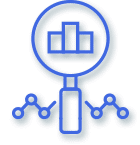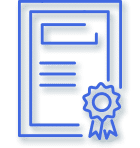What does an Addiction Counselor in Minnesota do? What is Their Job Role?
If your dream is to become a substance abuse counselor you've chosen an excellent profession. The Bureau of Labor Statistics (BLS) projects this field to grow 23 percent in the next decade, far faster than the rate for all occupations. According to U.S. News and World Report one of the biggest factors behind this growth is new laws that send substance abusers to counseling programs instead of prison; another factor is the growing opiate abuse problem.
While substance abuse counselors most commonly help people with drug or alcohol abuse they can also address other issues such as tobacco use, eating disorders, and gambling. They may also counsel groups, families, or individuals about prevention programs.
In Minnesota the median annual wage for substance abuse counselors is $46,460. The top 10 percent, which typically represents those with the highest education and most experience, earned $70,840. The Minneapolis-St. Paul metropolitan area has the fourth largest employment level in the nation, so your job prospects are excellent.
Compare Popular Online Substance Abuse Counseling Programs
Overview

Minnesota is one of a few states that have only one licensure for substance abuse counselors: the Licensed Alcohol and Drug Counselor (LADC). You must have at least a bachelor’s degree as well as specific supervised clinical experience before you are eligible to test for this credential.
Substance abuse counselors in Minnesota are overseen by the Minnesota Board of Behavioral Health and Therapy (BBHT). The BBHT recognizes several pathways to licensure to give flexibility to those joining the profession.
Although the basic educational requirement is a bachelor’s degree there are other rigorous educational requirements that must be met such as coursework covering the 12 Core Functions of substance abuse counseling.
Your required experience is called a Practicum and must be performed under a clinical supervisor that is recognized by the state. As soon as you meet all the prerequisites you may test for the licensure as indicated.
Once licensed as a LADC you must renew your credential periodically, and during the time frame before renewal must meet education requirements as set by the BBHT.
Becoming a substance abuse counselor isn't easy, and you should plan to join one or more professional associations as soon as you register for your first classes. Membership in an organization can provide you with the support you'll need while you earn your degree and credential.
Minnesota Licensing & Certifications for Associates & Independent Counselors
As previously mentioned Minnesota has only one credential for substance abuse counselors: Licensed Alcohol and Drug Counselor (LADC). There are two paths to choose from when earning the credential: Method I and Method D. Here's a look at the requirements for each:
Method D-Standard Method
- Bachelor's degree
- 18 semester credits (270 hours) of specific counseling course work covering the 12 Core Functions:
Screening
Intake
Orientation
Case management
Assessment
Treatment planning
Counseling
Client education
Consultation with professionals
Crisis intervention
Record keeping and reports
Referral
Also required in the 270 hours are classes in the following:
- Transdisciplinary foundations of the profession
- Pharmacology and dynamics of addiction
- Co-occurring disorders
- Multicultural aspects
- Professional and ethical responsibility
- 880-hour counseling practicum: this is a two-semester field placement (internship) usually in chemical dependency where the student works at a licensed agency.
- Passing score on written comprehensive exam OR Passing score on written and oral exam
Method I
Method I is referred to as the Supervision Alternative and has the same academic and practicum requirements as Method D. The difference is the student will work 2000 hours under clinical supervision within 12 to 36 months and then pass a written exam (rather than the comprehensive exam).
Education Requirements

As previously stated, you must hold a bachelor's degree and complete specific coursework to be eligible to test for the LADC. All coursework must be through an accredited institution. Although your bachelor’s degree does not have to be specific to substance abuse counseling if you attend a program dedicated to the field you will have the advantage of meeting the coursework requirements while earning your degree.
Find Your Online Addiction Counseling Program
While a bachelor’s degree is the minimum requirement for licensure the BLS states over half of all practicing substance abuse counselors hold a master’s degree or higher. You should make this your long-term goal and plan accordingly.
Make sure you coordinate your licensure requirements with your school of choice before enrollment. Verify they offer all the required coursework and practicum as set by the BBHT so you can clearly see your progress as you work towards your degree and licensure.
CACREP Accredited Online Certification

Two types of accreditation are recognized in the United States; institutional and specialized. Institutional accreditation takes the entire institution into account while the specialized focus on professional preparation programs. The Council for Accreditation of Counseling and Related Educational Programs (CACREP) is a specialized accreditation that focuses on master’s and doctoral degree programs in counseling at colleges and universities worldwide. Only already-accredited institutions are eligible for CACREP review. The review for accreditation will center on programs offering graduate degrees in counseling.
Choosing a CACREP-accredited program ensures that the program meets the highest of quality standards. Many counseling specialties are accredited bythe CACREP, including addiction counseling. Accredited addiction counseling programs prepare individuals to work with those affected by addictive behavior and their families. Addictive behaviors include alcohol, drugs, food, gambling, sex, and anything else that negatively affects your personal or work life by creating addiction behaviors.
CACREP-accredited programs will focus on treatment models and the phases of addiction including prevention, recovery, and relapse prevention. These 60-semester hour programs will include the application of interventions. When students choose a CACREP-accredited program they can be confident that:
- the program meets or exceeds national standards
- the program will focus on professional counseling rather than psychology oreducation
- the program has an excellent reputation
- CACREP graduates statistically receive higher scores on the National Counselor Examination for Licensure and Certification (NCE).
- the requirements for licensure will be met.
Board of Behavioral Health and Therapy
The Minnesota Board of Behavioral Health and Therapy states that their mission is to “protect the public” by enforcing statutes governing licensees. The Board provides effective licensure practices for qualified alcohol and drug counselor candidates as well as monitoring the counseling industry to uphold standards of ethical practice. The Board is responsible for initial and renewal licensure and setting forth rules of conduct. A list of licensees is available through the Board, as well as consumer information regarding the laws and regulations professionals must adhere to. The Minnesota Board reviews established rules periodically and are host to a disciplinary committee with a formal complaint process.
Address
2829 University Ave SE
Suite 210
Minneapolis MN 55414
Phone
(612) 548-2177
Website Address
https://mn.gov/boards/behavioral-health/
Licensure:
- Licensed Professional Clinical Counselor (LPCC)
- Licensed Professional Counselor (LPC)
Counselor Testing & Examination Process
You may download the credential application from the BBHT website. Once you complete the form you will have to have it notarized before you send it to the Board with your application fee. Here's what you'll need to complete the application:
- All school transcripts must be mailed directly to the BBHT from the institution or institutions.
- The application fee is $295 and the background check fee is $32 for a total fee of $327
- Academic Course Work Summary
- Verification of Completion of Supervision Plan
- Alcohol and Drug Counselor Practicum
- Records Waiver Authorization and Release: this waiver will give the BBHT permission to conduct a background check from the following institutions:
- All colleges and post-secondary educational institutions
- Police departments
- Minnesota Certification Board (MCB)
- International Certification and Reciprocity Consortium (ICRC)
- Department of Human Services (DHS)
- Office of Health Facility Complaints, the Office of Mental Health Practice
- Division of Driver and Vehicle Services in the Department of Public Safety
- Bureau of Criminal Apprehension (BCA)
- Any other entity maintaining records on you.
After your application is received you will receive a fingerprint information packet via the postal service. Once your application is approved you'll be notified on the exam process. Your testing procedure will depend on which test route you've decided to take. The BBHT accepts the IC&RC written comprehensive exam as well as the NAADAC (NCC-AP-NCAC) Level 2 written comprehensive exam.
Clinical Supervision Explained
Clinical supervision is the term used to verify your practicum and experience meets the standards of the BBHT. The person or persons overseeing your practicum must have a minimum of three years experience as an LADC and have taken a minimum of 12 hours of training in clinical and ethical supervision. They will be responsible for mentoring, training, counseling, and recommendations for your formal training period. Supervisors must be approved by the BBHT and will be tasked with filling out the Verification of Completion of Supervision Plan in your application packet.
Renewal and Continuing Education
Your LADC credential expires every two years and is subject to renewal after that time period. During the two years you are required to complete at least 40 clock hours of continuing education. The 40 hours must include a minimum of three hours of professional ethics as well as a minimum of nine hours on cultural diversity. The following are accepted population groups for the cultural diversity requirement; other groups may also be accepted.
- African American
- Asian American
- Chicano/Latino
- Native American
- Deaf and Hard of Hearing
- Disability
- Men
- Women
- Adolescents
- Elderly
- Gay, Lesbian, Bisexual, and Trans-gender people
The following activities meet the requirement for continuing education clock hours:
Attendance at educational programs of:
- Annual conferences
- Lectures
- Panel discussions
- Workshops
- In-service training
- Seminars
- Symposia
College or university courses at a regionally accredited school or education program; one semester credit is equal to 15 clock hours
Home study or online courses from an accredited school or education program that require a you to demonstrate knowledge following completion of the course
Teaching a course directly relate to the practice of alcohol and drug counseling at a regionally accredited institution of higher education. Continuing education hours may be earned only for the first time the course is taught; 10 continuing education hours may be earned for each semester credit hour taught
Presentations related to alcohol and drug counseling given at:
- Workshops
- Seminars
- Symposia
- Meetings of professional organizations
- In-service trainings
- Postgraduate institutes
A presenter may claim one hour of education for each hour of presentation time as well as development time credit at the rate of three hours for each hour of presentation time.
Potential Counselor Career Path Options
- Addiction Counselor
- Alcohol and Drug Addiction Counselor
- Behavioral Health Specialist
- Certified Addiction Drug and Alcohol Counselor
- Chemical Dependency Counselor
- Mental Health Counselor
- School Counselor
- Substance Abuse Counselor
Associations & Organizations

As you work towards your career in substance abuse counseling you'll find professional associations to be invaluable and you should plan to join one or more as soon as you enroll in school. Membership in organizations will give you a source for mentorship and networking as well as information on the latest news, changes in laws, and other aspects of the counseling field. You'll also have them as a source for continuing education, conferences, seminars, and job boards as your career progresses. Here are a few associations you can join in Minnesota and on the national level:
- Minnesota Association of Resources for Recovery in Chemical Health
- Minnesota Chapter of the Association for Addiction Professionals
- Upper Midwest Indian Council on Addictive Disorders (U.M.I.C.A.D)
- The National Association of Alcohol and Drug Abuse Counselors (N.A.A.D.A.C.)
- Minnesota Council of Addiction Studies Education (MnC.A.S.E.)
- American Society of Addiction Medicine (A.S.A.M.).
